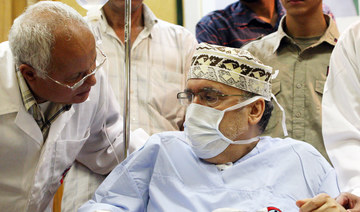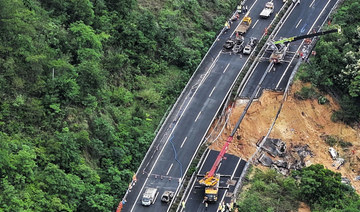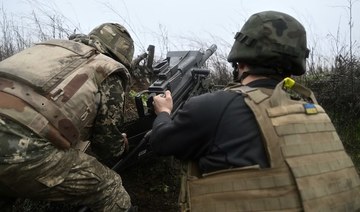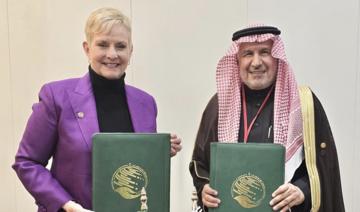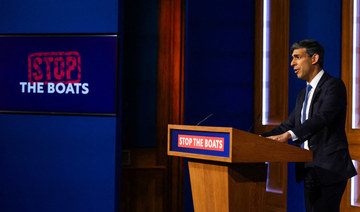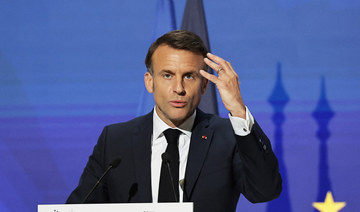EDINBURGH: Five judges at Scotland’s highest court of criminal appeal on Friday upheld the conviction of the only man found guilty of the 1988 Lockerbie bombing after a posthumous legal challenge.
The family of former Libyan intelligence officer Abdelbaset Ali Mohmet Al-Megrahi, which brought the case, said they were “heartbroken” at the decision, their lawyer Aamer Anwar said.
They will apply to appeal to the UK Supreme Court within 14 days, he added.
The ruling at the High Court of Justiciary in Edinburgh comes just over 32 years after what remains Britain’s worst terrorist attack, with long-held doubts about Megrahi’s involvement.
Megrahi spent seven years in a Scottish prison after his conviction in 2001 for the mass murder of 270 people, when Pan Am Flight 103 blew up over the Scottish town on December 21, 1988.
The Libyan regime of Muammar Qaddafi officially acknowledged responsibility in 2003, and paid $2.7 billion in compensation to families of the victims.
Megrahi was released and returned to Libya in 2009 after being diagnosed with terminal cancer. He died in 2012, protesting his innocence.
An initial appeal against his conviction and sentence was rejected, while a second was abandoned after his diagnosis.
Anwar said Megrahi’s son Ali and the family would still fight to quash the conviction.
“All the Megrahi family want for Scotland is peace and justice, but as Ali stated today their journey is not over, Libya has suffered enough, as has family for the crime of Lockerbie, they remain determined to fight for justice,” he said.
The family wants the British authorities to declassify documents that are said to allege that Iran used a Syria-based Palestinian proxy to build the bomb that downed the Boeing 747.
The documents are thought to allege a Jordanian intelligence agent within the Popular Front for the Liberation of Palestine-General Command (PFLP-GC) built the bomb.
The PFLP-GC has been designated a terrorist group by several countries, including Britain and the United States.
The Lockerbie bombing is alleged to have been carried out in retaliation for the downing of an Iranian passenger jet by a US Navy missile in July 1988 that killed 290 people.
The case came back to court in November last year after an independent criminal case review body said a possible miscarriage of justice may have occurred on the grounds of “unreasonable verdict” and non-disclosure of evidence.
But the judges rejected both grounds of appeal.
“The appeal against conviction is refused,” they said in a 64-page ruling.
Central to his family’s case was the testimony of Tony Gauci, a Maltese shopkeeper, who identified Megrahi as the man who bought clothes found in the suitcase that contained the bomb.
Lawyers argued his eye-witness evidence should have been discounted and was “highly prejudicial” because he had earlier seen a photograph of Megrahi as a suspect in a newspaper.
They said Gauci was motivated by reward money, that there was no proof Megrahi bought the clothing, and that dates of his supposed visit to Malta did not fit the timeline.
The suitcase was loaded onto a plane from Malta to Germany, then transferred to the ill-fated flight that left London Heathrow bound for New York.
The government’s case was that Megrahi used a false passport to travel to the Mediterranean island, and that Gauci did not receive any remuneration.
Crown lawyers said the three judges who tried and convicted Megrahi were entitled to infer he was involved, and the fake document was part of a “significant chapter of evidence” supporting that.
On the 32nd anniversary of the Lockerbie bombing in December, the US Justice Department announced a new indictment against another former member of Qaddafi’s intelligence services.
It alleges that Abu Agila Mohammad Masud assembled and programmed the bomb.
The investigation was relaunched in 2016 when Washington learned of his arrest after Qaddafi’s ouster and death in 2011, and his reported confession of involvement to the new Libyan regime in 2012.
Investigators also relied on his travel records, including a flight from the Libyan capital Tripoli to Malta.
Masud is currently being held in Libya for his alleged involvement in a 1986 attack on a Berlin nightclub that killed two US soldiers and a Turkish citizen.
Tripoli in 2004 also agreed to compensate the families of the victims of that attack.
Scottish court upholds Lockerbie bomber’s conviction
https://arab.news/5jvk4
Scottish court upholds Lockerbie bomber’s conviction

- Ruling at the High Court of Justiciary in Edinburgh comes just over 32 years after what remains Britain’s worst terrorist attack
Russia puts Ukraine's Zelenskiy on wanted list, TASS reports
MOSCOW: Russia has opened a criminal case against Ukrainian President Volodymyr Zelenskiy and put him on a wanted list, the state news agency TASS reported on Saturday, citing the Interior Ministry's database.
The entry it cited gave no further details.
Russia has issued arrest warrants for a number of Ukrainian and other European politicians since the start of the conflict with Ukraine in February 2022.
Russian police in February put Estonian Prime Minister Kaja Kallas, Lithuania's culture minister and members of the previous Latvian parliament on a wanted list for destroying Soviet-era monuments.
Russia also issued an arrest warrant for the International Criminal Court (ICC) prosecutor who last year prepared a warrant for President Vladimir Putin on war crimes charges.
Russia has opened a criminal case against Ukrainian President Volodymyr Zelenskiy and put him on a wanted list, the state news agency TASS reported on Saturday. (AFP)
A Chinese driver is praised for helping reduce casualties in a highway collapse that killed 48
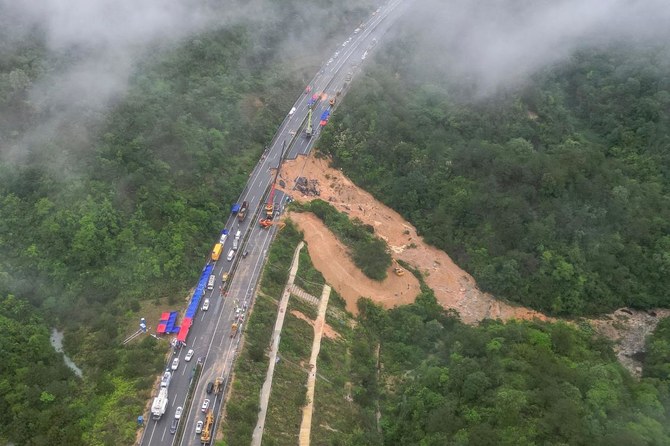
- Reacting swiftly, Wang, a former soldier, positioned his truck to block the highway, effectively stopping dozens of vehicles from advancing into danger
- His wife got out of the truck to alert other drivers about the situation
BEIJING: A Chinese truck driver was praised in local media Saturday for parking his vehicle across a highway and preventing more cars from tumbling down a slope after a section of the road in the country’s mountainous south collapsed and killed at least 48 people.
Wang Xiangnan was driving Wednesday along the highway in Guangdong province, a vital economic hub in southern China. At around 2 a.m., Wang saw several vehicles moving in the opposite direction of the four-lane highway and a fellow driver soon informed him about the collapse, local media reported.
Reacting swiftly, Wang, a former soldier, positioned his truck to block the highway, effectively stopping dozens of vehicles from advancing into danger, Jiupai News quoted Wang as saying. Meanwhile, his wife got out of the truck to alert other drivers about the situation, it said.
“I didn’t think too much. I just wanted to stop the vehicles,” Wang told the Chinese news outlet.
Wang’s courageous actions not only garnered praise from Chinese social media users but also recognition from the China Worker Development Foundation.
The foundation announced Friday that in partnership with a car company it had awarded Wang 10,000 yuan ($1,414). A charity project linked to tech giant Alibaba Group Holding also gave an equal amount to Wang, newspaper Dahe Daily reported. Wang told the newspaper he would donate the money to the families of the collapse victims.
Local media also reported that another man had knelt down to prevent cars from proceeding on the highway.
The accident came after a month of heavy rains in Guangdong. Some of the 23 vehicles that plunged into the deep ravine burst in flames, sending up thick clouds of smoke.
About 30 people were hospitalized. On Saturday, one was discharged from the hospital, state broadcaster CCTV reported. The others were improving, but one remains in serious condition.
On Saturday, the Meizhou city government in Guangdong said in a statement that authorities would conduct citywide checks on expressways, railways and roads in mountainous areas. A team led by the provincial governor is investigating the cause of the collapse, Southcn.com reported.
The Chinese government had sent a vice premier to oversee recovery efforts and urged better safety measures following calls by President Xi Jinping and the Communist Party’s No. 2 official, Premier Li Qiang, to swiftly handle the tragedy.
The dispatch of Zhang Guoqing, who is also a member of one of the ruling Communist Party’s leading bodies, illustrates the concern over a possible public backlash over the disaster, the latest in a series of deadly infrastructure failures.
Russia says it shot down four US-made long range missiles over Crimea

- The ATACMS missiles, with a range up to 300km were used for the first time in the early hours of April 17
MOSCOW: The Russian defense ministry said on Saturday its air defense forces shot down four US-produced long-range missiles over the Crimea peninsular, weapons known as Army Tactical Missile Systems (ATACMS) that Washington has shipped to Ukraine in recent weeks.
The ministry said later that Russian aircraft and air defense systems had downed a total of 15 ATACMS in the past week.
On Tuesday, Russian officials said Ukraine had attacked Crimea with ATACMS in an attempt to pierce Russian air defenses of the annexed peninsula but that six had been shot down.
A US official said in Washington last month that the United States secretly shipped long-range missiles to Ukraine in recent weeks.
The ATACMS missiles, with a range up to 300km were used for the first time in the early hours of April 17, launched against a Russian airfield in Crimea that was about 165 km (103 miles) from the Ukrainian front lines, the official said.
The Pentagon initially opposed the long-range missile deployment, concerned that taking the missiles from the American stockpile would hurt US military readiness.
There were also concerns that Ukraine would use them to attack targets deep inside Russia, a step which could lead to an escalation of the war toward a direct confrontation between Russia and the United States.
Separately on Saturday, the Russian defense ministry said that in the last week its forces had destroyed a military train carrying equipment and arms produced in the West and supplied to Ukraine by NATO.
The scale of the damage, exact date and location were not disclosed.
Reuters is not immediately able to corroborate battlefield accounts from either side.
On Thursday, British Foreign Secretary David Cameron promised 3 billion pounds ($3.7 billion) of annual military aid for Ukraine for “as long as it takes,” adding that London had no objection to its weapons being used inside Russia, drawing a strong rebuke from Moscow.
South Sudan removes newly imposed taxes that had triggered suspension of UN food airdrops
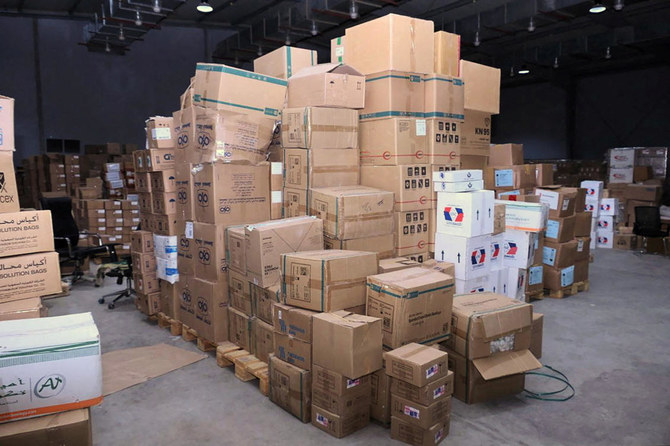
- The UN earlier this week urged South Sudanese authorities to remove the new taxes, introduced in February
- There was no immediate comment from the UN on when the airdrops could resume
JUNA, South Sudan: Following an appeal from the United Nations, South Sudan removed recently imposed taxes and fees that had triggered suspension of UN food airdrops. Thousands of people in the country depend on aid from the outside.
The UN earlier this week urged South Sudanese authorities to remove the new taxes, introduced in February. The measures applied to charges for electronic cargo tracking, security escort fees and fuel.
In its announcement on Friday, the government said it was keeping charges on services rendered by firms contracted by the UN peacekeeping mission in South Sudan.
“These companies are profiting ... (and) are subjected to applicable tax,” Finance Minister Awow Daniel Chuang said.
There was no immediate comment from the UN on when the airdrops could resume.
Earlier, the UN Humanitarian Affairs Agency said the pausing of airdrops had deprived 60,000 people who live in areas inaccessible by road of desperately needed food in March, and that their number is expected to rise to 135,000 by the end of May.
The UN said the new measures would have increased the mission’s monthly operational costs to $339,000. The UN food air drops feed over 16,300 people every month.
At the United Nations in New York, UN spokesman Stéphane Dujarric said the taxes and charges would also impact the nearly 20,000-strong UN peacekeeping mission in South Sudan, “which is reviewing all of its activities, including patrols, the construction of police stations, schools and health care centers, as well as educational support.”
An estimated 9 million people out of 12.5 million people in South Sudan need protection and humanitarian assistance, according to the UN The country has also seen an increase in the number of people fleeing the war in neighboring Sudan between the rival military and paramilitary forces, further complicating humanitarian assistance to those affected by the internal conflict.
More migrant dinghies cross Channel to England despite Rwanda threat
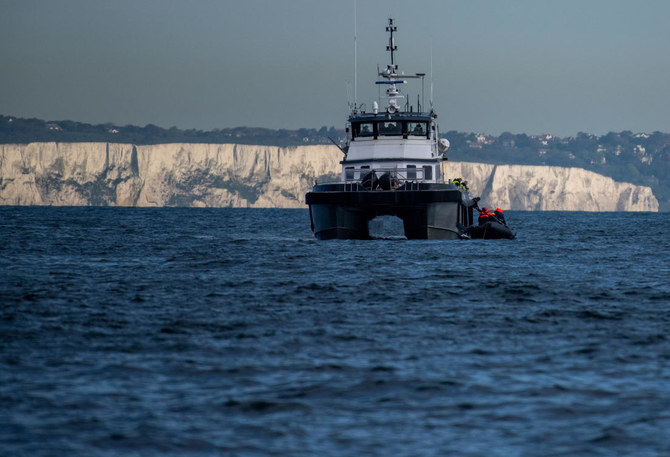
- The arrivals illustrate the difficulties British Prime Minister Rishi Sunak faces on his pledge to tackle illegal migration and “stop the boats“
- Sunak hopes his flagship Rwanda policy to deport those arriving in Britain without permission to the African nation will deter people from making the Channel crossing
STRAIT OF DOVER: Dozens of people in two rubber dinghies reached the southern coast of England on Saturday, the latest among thousands of asylum-seeking migrants to make the risky sea crossing from France this year.
Bobbing on the waves of the English Channel on a clear morning, the boats sailed across the narrow strip of sea separating France and Britain, with a French naval vessel following them until they reached English waters.
Their largely male passengers, some of whom were in orange life jackets and waving, were taken aboard a British Border Force vessel off Dover.
The arrivals illustrate the difficulties British Prime Minister Rishi Sunak faces on his pledge to tackle illegal migration and “stop the boats,” ahead of a national election expected later this year.
More than 8,000 people have arrived so far this year on small boats, with many fleeing war or famine and traveling through Europe to Britain, making the start of this year a record for such arrivals.
Sunak hopes his flagship Rwanda policy to deport those arriving in Britain without permission to the African nation will deter people from making the Channel crossing. Five people died in the attempt last month.
The government hopes to operate the first flights to Rwanda in 9-11 weeks.
“The unacceptable number of people who continue to cross the Channel demonstrates exactly why we must get flights to Rwanda off the ground as soon as possible,” a spokesperson for Britain’s Home Office said.
“We continue to work closely with French police who are facing increasing violence and disruption on their beaches as they work tirelessly to prevent these dangerous, illegal and unnecessary journeys.”



